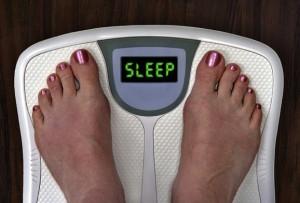I hope you’re enjoying the summer. I certainly am. It feels great to be back in the swing of things and have the opportunity to enjoy the outdoors. Hopefully you feel the same way and have been able to take advantage of this nice weather and engage in some outdoor exercise while doing so.
Many of my clients have no problem focusing on their exercise and nutrition, however, many of them struggle to understand the importance of creating healthy sleep patterns. Sleep is one of the 4 pillars in my Inflammation Transformation program, and I truly believe there is no way to achieve optimal health without addressing it.
Lack of healthy sleep patterns, not only affects our health, our immunity, and mental clarity, it also strongly affects how our body hangs onto excess weight. While my clients have various health concerns, weight loss seems to always be a top priority. It’s easy to think that diet and exercise are the only factors that affect weight loss, right? It’s what we’ve always been taught. But the truth is, creating healthy sleep patterns is equally important.
When we are short on sleep, our weight is directly impacted. It impacts our decision making, our hormones, and impulse control. When we don’t sleep enough it’s easy to grab that large latte with 5 pumps of sugar-filled vanilla syrup in attempt to push through. It also becomes tempting to skip exercise, get takeout for dinner, or just lay on the couch after dinner.
Studies show that when we miss out on sleep, late night snacking increases and we are more likely to reach for high carbohydrate snacks. They also show that those who sleep less than 8 hours a night, reach for snacks that have twice as much fat than those who sleep for a minimum of 8 hours. One last study illustrated that when short on sleep, people eat larger portions of food which we know can lead to weight gain.
Not sleeping enough, meaning less than 7 hours a night, can decrease and even undo the benefits of dieting. When we get a bad night’s sleep, it’s not only our brain and body that feel lousy, our fat cells do too. After 4 nights of poor sleep, the body’s ability to use insulin properly becomes entirely disrupted. It has been discovered that insulin sensitivity decreases by 30% at this point. What that means is we slowly become insulin resistant and fats circulate in our blood and pump out more insulin. This excess insulin begins storing fat in all the wrong places. This leads to weight gain and chronic diseases like diabetes.
One last reason to focus on getting 7 to 9 hours of sleep has to do with 3 hormones; leptin, ghrelin, and cortisol. Leptin is the hormone that tells us we’re full, while ghrelin tells us we’re hungry. When we are sleep deprived, leptin is depressed so we never feel full and ghrelin surges. The more ghrelin you produce, the hungrier you feel while also reducing the number of calories you burn and increasing the amount of fat you store. In addition, to ghrelin and leptin being affected by poor sleep, so is cortisol ( our fat storing hormone). When we don’t sleep enough, cortisol levels increase and this makes it nearly impossible to lose weight. High cortisol levels also tell our brain that we want more food. It’s a never-ending battle.
Have I convinced you about the importance of sleep when it comes to maintaining or losing weight? If I haven’t, I’d love to talk with you more about how we can get your sleep on track. Head to my website @https://balancehealthandnutrition.comto schedule a free 30-minute consultation. See you there!!










